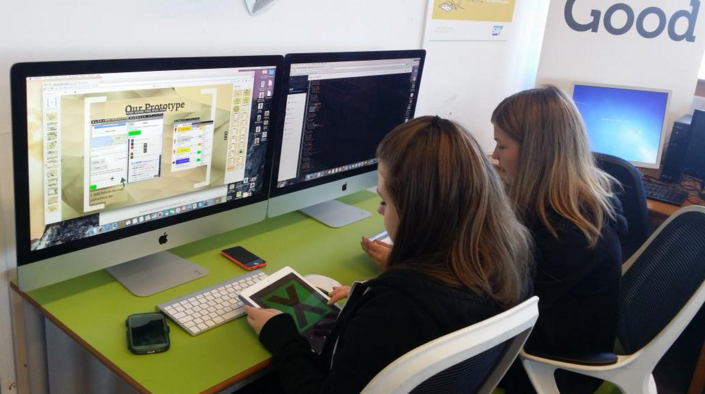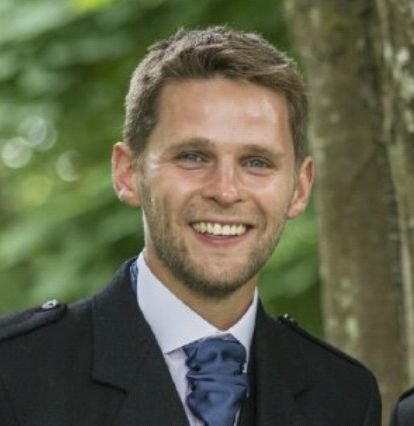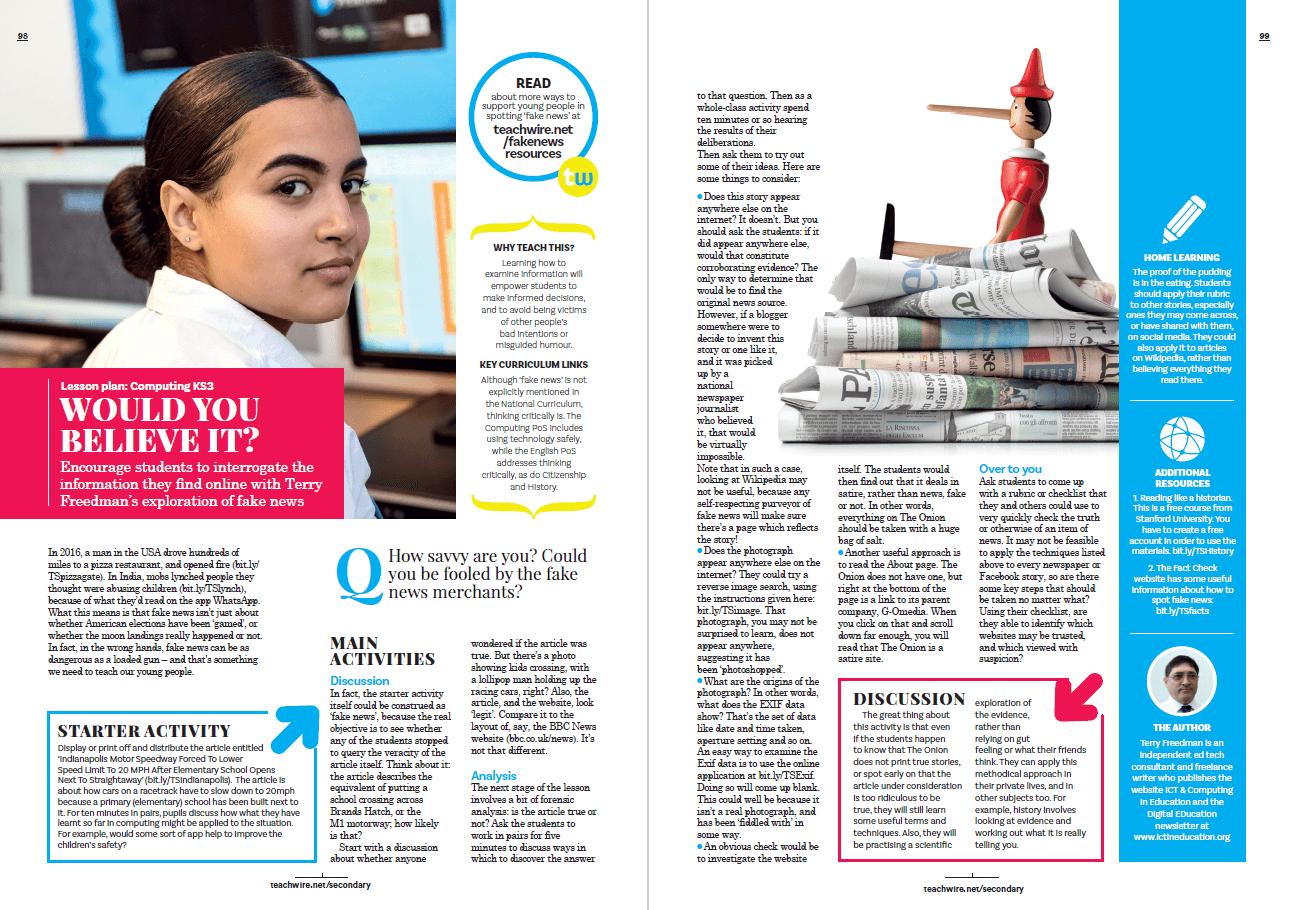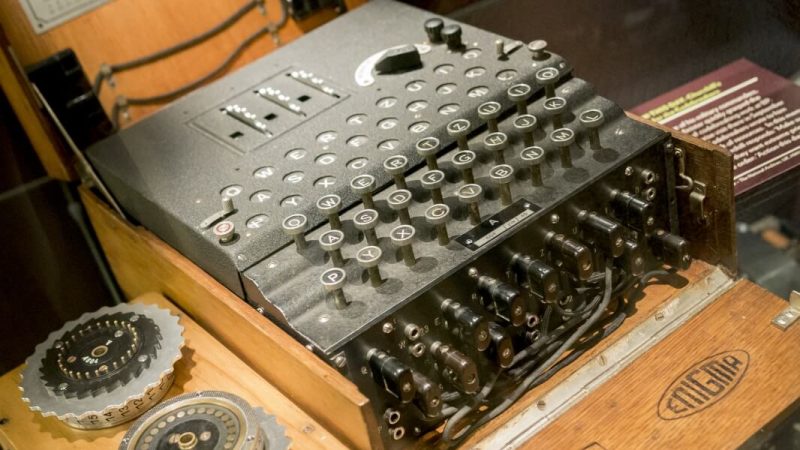How Can Schools Reduce The Gender Bias In Computing?

Chris Aitken, computing science teacher at Wick High School, discusses the school’s success in boosting girls’ engagement with computing

- by Chris Aitken

A question I’ve been asking myself for a while is, “Why are girls not choosing computing?” At both the local and national level, we’re still seeing that girls are simply not engaging with the subject.
Although I don’t have a definitive answer for this, we are beginning to see an upward trend in girls taking an interest here at Wick High School. Based on my experience, and from speaking to the students themselves, creativity and teamwork play a large role in driving this engagement and getting girls over that first hurdle.
A 50/50 split
It’s important to get girls involved with technology on a number of levels. It’s crucial that girls don’t see computing as a subject that they can’t, or ought not do. It shouldn’t be the case that girls become intentionally or unintentionally biased against studying the subject. From an industry perspective, there is a huge pool of talent that will continue to go untapped if girls choose not to pursue the subject at school, university, or as part of their career ambitions.
For the first time ever at our school, we now have a 50/50 split of boys and girls in one of our computing classes. Across the school, around 45% of the total number of students taking computing are girls – a sharp increase from last year’s 25%, and a great achievement. This is partly due to the fact that we now introduce computing to students earlier in school, as it helps them to understand that they can be good at it and, more importantly, enjoy it. By introducing girls to technology earlier, we can help remove those deep-seated biases.
A number of our girls have really taken to computing. 15-year-old Ellora James, for example, didn’t know how much she’d enjoy computing. However, after participating in the Apps for Good course and Outbox Incubator, she has changed her mind about her future career plans.
“I originally wanted to be a vet, but I quickly realised I was good at coding and since then, I haven’t looked back,’ she says. ‘It was my first chance to thoroughly design and create something, and I really enjoyed it! The sky’s the limit!” Ellora is now the chief technology officer for Envirocache – an app that she designed with two of her classmates, Sarah and Mari-Ann.
Another of my Y10 students, Megan Shearer, was inspired by the fact that technology will play a huge part in her future: “I find it really interesting, and I feel I’ll be at an advantage if I have an understanding of it,’ she says. ‘We can work to end the stereotypes in computing. When people say ‘But you’re a girl,’ it’s a real motivator to prove them wrong.”
No more divide
Getting girls involved with computing doesn’t necessarily mean they will become coding experts, but the exposure can lead to a deeper interest that will still inspire them in other ways.
Caitlin Taylor, for example, really enjoyed experimenting with apps, which led to her developing an interest in how technology can be used innovatively in many different ways: “Computing opens so many doors, and the skills you can develop are universal. I don’t study computing anymore, but I’m really interested in wearable devices and how they can be used in healthcare.”
We want to encourage more and more girls into computing, and when you’re with a group of people with the same mindset, there are absolutely no barriers to success in technology. These students have really inspired other girls to get involved with computing and technology projects.
There are still challenges of course – but by changing our approach to teaching computing for all ages in school, we can work to break these stereotypes and get more girls into technology. It really is a subject for everyone; the divide that existed 50 years ago simply doesn’t apply any more!
You can find out more about Wick High School’s efforts to challenge gender bias in STEM subjects at a seminar Chris Aitken, Ellora James, Caitlin Taylor and Megan Shearer will be giving at this year’s Bett show on Wednesday 20th January at 10:30am; further details can be found at the Bett website











